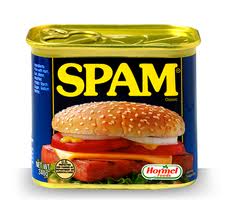
If you are like me your food storage is quite diverse, with canned foods integrated into the rotation cycle. Unfortunately there might not be a way to get through all of your canned food stock prior to hitting a few of those expiration dates, so what then? Do you assume the food magically turned poisonous and then discard it? I hope that is not your primary course of action because in reality canned foods (depending on a few factors) have been known to remain edible long after the manufacturer’s suggested expiration date. So the question remains just how long after the expiration date are canned foods good for? 1 year, 5 years, 10 years? While the method by which you store the food surely has an impact on shelf life (i.e. cool basement versus hot storage shed) there have been cases where canned food survived almost 100 years with no microbial growth whatsoever.
The steamboat Bertrand was heavily laden with provisions when it set out on the Missouri River in 1865, destined for the gold mining camps in Fort Benton, Mont. The boat snagged and swamped under the weight, sinking to the bottom of the river. It was found a century later, under 30 feet of silt a little north of Omaha, Neb.
Among the canned food items retrieved from the Bertrand in 1968 were brandied peaches, oysters, plum tomatoes, honey, and mixed vegetables. In 1974, chemists at the National Food Processors Association (NFPA) analyzed the products for bacterial contamination and nutrient value. Although the food had lost its fresh smell and appearance, the NFPA chemists detected no microbial growth and determined that the foods were as safe to eat as they had been when canned more than 100 years earlier.
In a more recent article entitled Exposing Myths About Expiration Dates on Foods, a reference is made to just how trained people are to discard many items once they are past the expiration date.
“An enormous amount of food gets discarded because of these dates and its really a shame because its perfectly fine, edible, wholesome food but people see the date and react to that,” said Buckley…
Buckley says the dates on canned and packaged foods, bottled water and even beer are more an indication of quality not a food safety or health issue. Even the “sell by” date on milk is only a suggestion.
The bottom line: Don’t be so quick to toss out or donate those canned food items sitting on your basement shelves just because they hit their printed expiration date. When all else fails, crack those suckers open and use your senses to determine if they are still edible (they probably will be). When in doubt some high heat from your rocket stove and an iron skillet can serve as another method by which to “cleanse” the food prior to eating it.
Check out this video for another perspective on which canned foods last the longest.
[notice]Like this Post? Check out some of our other most popular ones below![/notice]
Canned Food Expiration Date MYTH
24 Things Preppers Are Tired of Hearing
The Importance of STOCKPILING Water
What Happens When You Bury a Shipping Container, A Cautionary Tale
AR15: One of Your Best Options After SHTF
Ham Radio, The Only Form of Communication After T-SHTF
Why You Should Own a German Shepherd









45 comments
4 pings
Skip to comment form
In my entire 30 plus years since I left home I recall having only one can of tomato sauce that went bad. Even foods that are not in cans will last longer than the expiration date. Last week I ate a box of walmart cheese flavored crackers with a late 2011 expiration date. I was surprised. They tasted great.
When the SHTF one of the first things to do on my mental to do list is stash food in the almost impossible to find places in the house (One example: inside the dryer. Not the part that goes round and round but inside the metal housing). If I find any food that looks or is bad, that is the decoy food if any of my fellow Americans in uniform come around for mandatory donations. So even bad preps have a purpose.
Author
Lux
I like the idea of using the dryer as a spot to hide things. Quite genius I might add..
I use my washer and dryer to stick stuff in during tornado weather….laptop, papers, etc. I’ve also thrown the cat in the dryer to protect her when the sirens went off once.
Author
LOL! Cat in the dryer, I’m sure it was freaking out!
Don’t put your pets in a dryer or anything like that, you’ll severely traumatize her and may put her life in danger! Couldn’t you think of something safer and more pleasant? Good grief! Poor kitty :o(
I’m sure your heart was in the right place, but I agree with the other comments. What if something had happened to you … the cat could
never get out of there! And … what if the cat had to ‘go’ ….you would
never get that out and would have to get a new dryer!
If you want a larger place to hide things. Get a 4″ to 6″ piece of PCV and set up a “fake” sewer drain in your basement. Easy to fasten to floor and ceiling, and unless someone has actually plumbing diagrams for your house…. they’ll totally over look it. PLUS you can put in a false plug that plumbers use to clear clogs…. This is large enough for food, weapons, ammo, etc. Just a thought.
Author
Great point about the false sewer drain, definitely a cache location hidden in plain sight!
I’ve also seen this done with AC ductwork and water heaters.
Had cans of juice that rusted thru the botton and then leaked. What a mess. These were commodities that had been given to me. I now buy juice in bottles, which I recycle to hold water. Otherwise on canned goods, I’ve only had to throw out one can of navy beans….they’d gotten in the back corner and basically forgotten…probably about at least 5 years old and had started to rust on the bottom.
Author
Lynne,
A great point, we should all check our food storage items during our inventories. Besides knocking off spider webs it’s a good time to check for rust or signs of other critters. I’m sure the climate in which items are stored certainly contributes to the formation of rust (or not).
Don’t stick your cat in the dryer, if you forget you’ll kill your cat. I’ve read that in the paper numerous times. Most of the time they are in there because its warm and the people didn’t know the cat had gone in there. But its still bad practice and in an emergency the cat would have a better chance of survival finding a place to hide on its own and not be stuck in a sheet metal box of heat.
Yesterday the date is 11/8/2013, i was in the process of making some home made beef stew with some fresh stew meat from the local grocer’s, potatoes, onions, frozen carrots, fresh garlic, and some spices.
After a low boil period of a couple hours, I tasted it and thought, this needs a little beefier taste, so I added a few beef boulion cubes I had in storage, an hour later my wife and I sat down and had a nice dinner, with some toasted garlic bread and a glass of red wine. As I was cleaning up later, I noticed the Best If Used By date on the bullion cubes was 8/2006!. Oh crap! I thought to my self, wondering if food poisoning was a possibility, well we both made it though the night and the next day with no after effects, so my advice is, don’t get to excited those dates on your preps!
Just go to Armour Foods website and read about expiration dates. It is the most honest description I have ever heard. The FDA requires companies to print those dates. And what company in their right mind would put a date 10, 20, 30 years or so on their product and guarantee that it is good. That would be a huge liability risk if someone got sick from eating a tainted product. That is why they usually stick with the 2 year rule. Support Armour Foods, just for being honest.
I was amused that he thought Armour was a cut rate company. Armour Foods started in 1867 as a meat packing plant in Chicago that expanded including Kansas City, MO which had a huge meat packing industry. One of the main streets in the old industrial district in KC is Armour.
I have canned cream of mushroom 12 cans i bout 2 yrs ago. they just expired sep 2013. can i still feed my kids awaited green bean casserole with it?????? stores closed and its thanksgiving ….
I can honestly say I’ve lost more than my fair share of canned foods due to expiration dates, and while I do understand and have known for many years the expiration date is nothing more than a way to protect the company from people who want to sue over anything and everything.
The things which can cause problems with canned foods are the basics as I see it. First you want to keep moisture levels in your house at 30% or less, which greatly helps on keeping mold from growing and can goods from rusting. Two keep the temps cool in the summer time, otherwise it seems to do something inside the cans which can cause the cans to swell up and then shortly after (within a couple of months) they start to leak. Another problem is if you live in a cold climate like I do, keep the can goods from getting to cold or if they freeze inside they go bad and will leak. Lastly “don’t dent the cans” because as I’ve been told it is the quickest way to get food poisoning if the coating on the inside of the can is damaged and the food touches the metal.
I lose to much long term canned goods mostly because I can’t control the heat in my house in the summer time and we can see into the 100’s, and in the winter we see well below freezing temps and I freeze the water pipes inside the house several times during the winter. Then with all the remodeling and construction which goes on inside my house we have to move things around more often than not it seems at time for work we are doing and thus we get dented cans, so I have learned a bit about why my can goods have been leaking and spoiling more than I’d care for.
My biggest issues have been with tomato based products, and canned milk for whatever reasons, and not because they were dented, but because they leaked for whatever reason. I go through the cupboards once a month to check the cans and try to keep things rotated, so I have been paying attention and learning from the mistakes and things I have learned.
Author
CC
You make some valid points related to temps and humidity, fortunately I keep most of my canned food items in the basement which helps to thwart large fluctuations in either.
I have eaten dry mixes that were 12 years past the expiration date, canned food that was 6 years past and kept eggs for 6 months without refrigeration. Handled and stored properly they say eggs will last over a year entirely without refrigeration. I have encountered canned food that was bad. The side effect I experienced each time was only minor diarrhea. Due to my eating any questionable food the same way I do when learning new wild edibles. First a very small piece, then several hours later a small mouthful, then the next day a small portion.
Remember that cooking will kill the bacteria but it will not remove the bacteria’s waste products. The waste products of botulism are what poisons us and there is no cure. You survive it or you don’t, not much even a hospital can do for you then.
@ SixKiller: I’m glad everything turned out ok for y’all. However, beware of generalizing from that experience. The main reasons bullion cubes last so long after their expiration date is because they are super high in salt, very low on moisture and contain relatively little food for pathogens. Bacteria, like everything else on the planet, need water and energy to grow. According to what I’ve read, which has been backed up by my numerous forays into past the date food, what the food is made of as well as how it is handled and stored is more important than the expiration date.
We used canned food past 10 years mmm mmmm good!!!
Valerie and I cook everyday with expired food, and it’s yummy good.
I’ve done some cooking with expired canned foods but the only issue I seem to come across is the tinnie taste the can leaves over time. Salt ridden foods like green beans and peas seem to envelop this more often. Has anyone else encountered this?
Author
I usually heavily season my canned food items when cooking to avoid this very issue, otherwise I’m sure it would exist.
I think that is normal whether out of date or right off the shelf. Green beans have less of an off flavor if using french cut that regular green beans.
Rice & Pasta do need to have a bay leaf stored inside the container to prevent bugs from getting into the package and eating the rice or laying eggs. Sounds awful, but true. Sugar, flour, any dried product for long term storage. Just throw a couple on your pantry shelf and not bugs or ants. 🙂
Thanks for all the info! Just going through all my preps and a little worried about some outdated cans. Not so worried now.
I went to USAF Basic-Training in July 1981. The day we went for ‘Confidence Course Training’ (Obstacle Course), it was too far (3+ miles) to march back for lunch. The USAF solution? C-Rations. There was a variety of canned meats, fruits & vegetables that were canned suring WWII in the early 1940s. We opened our cans with the small 1.5 inch hinged can-openers we were given. It took a few minutes to figure out how to use the openers, but HUNGRY guys 18-25 will figure out food-access fast! 😉 Anyway, everything we opened/ate that day was tasty & you couldn’t tell if it was canned yesterday or 4 decades earlier.
My concern would be Botulism. Once you open an expired can, you won’t necessarily be able to tell by smell or taste or texture if it’s present, and even cooking it well only removes the clostridium botulinum bacteria, but won’t always remove the toxins that they produce. You could hear all kinds of stories about people who have gone years and years eating food from expired cans with no troubles, but then it only takes one can of contaminated food to make you sick or potentially even kill you.
I recommend dehydration as a preferred method of food storage. It solves a lot of problems. It takes up less space, weighs less, is more portable and most food will last 30 years if dehydrated properly (not contaminated with oils from your hands and vacuumed sealed). I prefer using ball glass jars. The lids are reusable when using vacuum sealing as long as they are not bent when opening the jar. You can take out what you need out of the jar and vacuum seal it again until it all is used then recycle the jars and lids. This works best for fruits, vegetables and spices.
I had just started my canned potato and leek soup from heinz, when a friend asked what the date on the can was, as the mixture had solidified in the can but turned to liquid whilst being heated up. today is 11th august 2014, the best before date was sept 2012. I was told throw it away yuo will get food poisoning! Was he right?
Dates on products are somewhat arbitrary at best; it is not black and white because there are so many variables including storage temperature, handling, humidity, which can all affect the product. A product with a “good” date can potentially be bad it has experienced a history of less than optimum conditions. Knowing the history of the item and using your own senses of smell and sight are the best assurance of food safety; if the can is compromised (swollen, rusted, damaged lining or seal) toss it, if it does not smell right or look right, toss it; if it taste unusual, toss it. We need to be pro-active in our choices and not just blindly follow a date that is basically a manufactures guard against potential liability.
I never eat expired food and I try my best to avoid canned food which is added too many preservatives.
Last night I had a tin of Campbell’s cream of mushroom soup that has been carried around in my truck since I don’t know when the label was tatty but no dents or rust and a date stamp on the base 2002 I opened the tin cautiously and smelt the contents examined them visually a milky solution in the top with a quadrant of something more yellow and frothy on closer inspection this was butter that had separated and solidified obviously when the can had been stored on its side at some point and the rest was a solid lump. A quick check online gave me the confidence that it would be fine. I heated it gently and stirred and stirred it till it was smooth then briefly brought it to the boil just in case. It tasted fine the consistency was thick and glupey maybe because I over heated it but no Tinny taint to it just surprisingly salty possibly because they reduce the salt content in everything now days
Author
Vince
Thanks for the contribution, one point you brought up was that the soup was in your truck…hence exposed to extreme temps in the summer and winter. If it was still good to go that’s a good endorsement for the longevity of canned foods.
Good topic here, WHAT IS SAFE TO EAT? I reply to JH’s concerns…………….
JH you stated above…. My concern would be Botulism. Once you open an expired can, you won’t necessarily be able to tell by smell or taste or texture if it’s present, and even cooking it well only removes the clostridium botulinum bacteria, but won’t always remove the toxins that they produce
Yes indeed once you have opened it it’s true Botulism has no odor or taste.
We however have been eating discarded can goods since the early 70’s and always do our inspection PRIOR to opening the can. You see those pesky little bacteria produce gas in their waste products, which will cause your can to swell.
So our can good inspection would go something like this.
1) No dents around rim, no swelling = good to eat.
Been eating outdated and discarded can goods for 40+years and still kickin! Yo bros always use common since and proceed with caution.
Bonapetiet! Smiles 🙂
Just opened a can of tomato sauce that was almost 3 years out of date and it smelled and looked delicious. Double checked on the CDC website and as I learned 40 years ago, boiling for 10 minutes still destroys botulism toxin. So I let it boil while putting together the rest of the ingredients for a ravioli casserole and now I feel safe eating it. The casserole will be in a 400 degree oven for a half hour, so no worriesl
If everything looks and smells good but you are still leery of eating it, this ensures any botulism toxin is destroyed. Some things would turn to mush, however, if you need to use the food, this would be a safe way. Go ahead and do a search for destroying botulism toxin and you will find multiple posts by universities and canning sites to be reassured.
Thank you Hollie, this was the exact information I was looking for.
Having grown up being raised by my depression era grandparents, we canned most everything. They always told me that once it is sealed, canned, and cooled, if it hasn’t bulged or “popped” it’s still good. This is my test for all canned goods. If the can hasn’t started leaking and/or is “popped” (meaning the top and bottom aren’t bulging) then the contents are still edible. Me and my kids are still alive with no food poisoning so I guess the old folks were right……….again.
We eat canned products expired all the time. Many 4+ years out of date with no problems.
As per my knowledge Canned foods are not as unhealthy as you think.They are actually a fresh food which is salted so as to preserve the food from decaying. As they are tinned no external reacton takes place . And the only issue with the caned food is that as its salted, the chance of Salt consumption is more in canned food than the normal foods.
Canning technoque has improved a lot and its packed hygiee rich when closely packed.But, when buying them, remember to check the expiry date and ensure that the cans don’t look dusty or have torn labels, because that might indicate old stock. At home, practice the rule, first in, first out; this means you should use the oldest products first. I sue to follow the instrucions found in websites before buying Canned foods.Will share with you one good site here:
http://www.nestle-family.com/nutrition-for-all/english/all-you-need-to-know-about-canned-foods_436287.aspx
Just shoot and eat the looters. Duh.
Try this for the ” I will find something wrong with anything” crowd
Open a fresh, well with in use by date, prepare two (2) servings from the fresh item. Tell the I never am wrong liberal to taste both as one is fresh and one is expired. You will be surprised at how one became bad.
I might be a little bit late to comment but this is a very important article containing information that more people need to understand. The amount of unnecessary waste in the US is repulsive. Thank you for bringing attention to the food expiration myth!
I’m searching for info on expired canned foods. I ate some soup and threw it all up in a way that I’ve never thrown up before. I’ve had grandparents open canned foods expired that taste like metal. It is hot and humid where I live. I have a family member fighting to keep the expired canned foods and serve it to an Alzheimers member. I am concerned.
[…] Prepper Resources – by PJ […]
[…] When canned food expires it is most likely still good for consumption more… […]
[…] 5 years; however, canned goods can be safely consumed after this period. In fact, they can last more than 100 years before developing significant microbial […]
[…] Source: https://www.prepper-resources.com/canned-food-expiration-date-myth/ […]